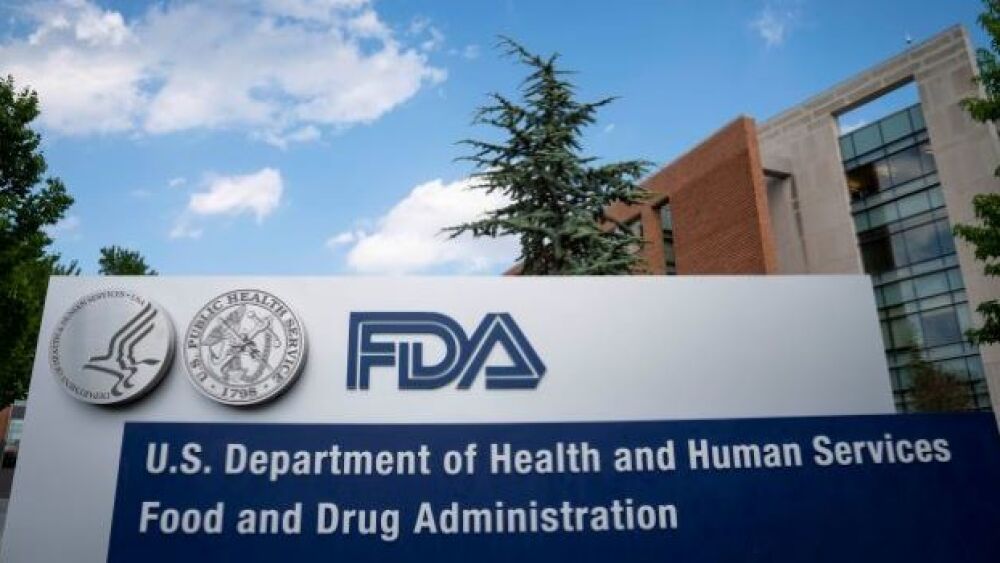Peter Marks described the steps the agency is taking to advance the development of gene therapies for rare disorders. This could spell good news in the near future for Sarepta Therapeutics.
Pictured: FDA sign in front of building/Courtesy Sarah Silbiger/Getty Images
An FDA official kicked off the 2023 Muscular Dystrophy Association (MDA) Clinical and Scientific Conference Monday with a keynote address that described the steps the agency is taking to advance the development of gene therapies for rare disorders.
Peter Marks, director of the FDA’s Center for Biologics Evaluation and Research (CBER), summarized his speech in an interview with Neurology Live, in which he highlighted the work of the MDA, in particular.
His comments came only three days after the FDA announced plans to hold an advisory committee meeting for Sarepta Therapeutics’ investigational gene therapy for Duchenne muscular dystrophy (DMD) ahead of its May 29 action date.
In the interview, Marks said the agency is “trying to address some key things that can get in the way of getting gene therapies to patients” in three primary areas: manufacturing, clinical trials and commercial viability.
Marks emphasized that for these gene therapies to make it through clinical trials in a “relatively facile manner”, the agency has to make use of what it has at its disposal to grant the therapies accelerated approval. This includes using surrogate endpoints like biomarkers to measure expected clinical benefit.
After accelerated approval is granted, the companies would then be required to confirm the therapy’s safety and efficacy through trials with measured endpoints.
Marks said this would require the agency to “accept some level of uncertainty” regarding the effect of the therapies on patients until they could be tested further, according to Reuters.
This could signal good news in the near future for Sarepta, which has submitted for accelerated approval of SRP-9001 (delandistrogene moxeparvovec) in DMD.
In its upcoming meeting, the FDA advisory committee will vote on whether it believes the current data for SRP-9001 is enough to predict clinical benefit.
Friday’s announcement came as a surprise to many, as the FDA had previously stated it would not hold an adcomm meeting for the therapy. Doug Ingram, president and CEO, Sarepta, said in a statement he does not see the meeting as a setback for the company, as his team had not found any significant issues in safety and had “always assumed” there would be an adcomm.
The FDA has not yet set a date for the meeting.





